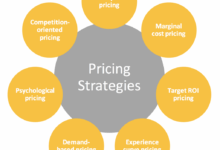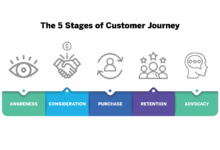Affordable CRM Software For Startups: Streamlining Growth With Cost-Effective Solutions
Affordable CRM Software for Startups sets the stage for this enthralling narrative, offering readers a glimpse into a story that is rich in detail and brimming with originality from the outset. In a world where startups strive for efficiency and growth, finding the right CRM software can be a game-changer.
As startups navigate the complexities of customer relationship management, the need for affordable yet robust CRM solutions becomes paramount. Let’s delve into the realm of cost-effective CRM software tailored for startups, exploring key features, customization options, integration capabilities, and more.
Importance of CRM Software for Startups
CRM software plays a crucial role in the success of startups by helping them effectively manage their customer relationships and streamline their business processes.
Benefits of Using CRM Software for Startups
- Improved Customer Data Management: CRM software allows startups to centralize customer information, making it easier to track interactions and personalize communication.
- Enhanced Communication: With CRM software, startups can automate emails, schedule follow-ups, and ensure timely responses to customer inquiries, leading to better customer engagement.
- Increased Sales Efficiency: By analyzing customer data and tracking sales activities, CRM software enables startups to identify potential leads, prioritize opportunities, and close deals faster.
Examples of How CRM Software Can Help Startups Streamline Processes
- Automated Lead Management: CRM software automates lead capturing, scoring, and nurturing processes, allowing startups to focus on converting qualified leads into customers.
- Efficient Task Management: Startups can use CRM software to assign tasks, set reminders, and track progress, ensuring that team members stay organized and productive.
- Improved Reporting and Analytics: CRM software provides startups with valuable insights into sales performance, customer behavior, and marketing campaigns, enabling data-driven decision-making and continuous improvement.
Impact of CRM Software on Customer Relationship Management for Startups
- Enhanced Customer Experience: CRM software helps startups deliver personalized experiences, anticipate customer needs, and build long-lasting relationships, leading to increased customer satisfaction and loyalty.
- Effective Marketing Strategies: By segmenting customers, tracking campaign performance, and analyzing results, CRM software empowers startups to tailor marketing efforts, optimize conversions, and maximize ROI.
- Scalability and Growth: As startups expand, CRM software can adapt to their changing needs, support collaboration across teams, and drive sustainable growth by fostering customer retention and acquisition.
Key Features to Look for in Affordable CRM Software
When choosing CRM software for startups, it’s crucial to prioritize key features that will support your business growth and streamline your operations. Here are some essential features to look for:
Lead Management
Effective lead management is vital for startups to track and nurture potential customers throughout the sales process. Look for CRM software that offers lead capture, lead scoring, and lead assignment features to help you prioritize leads and convert them into paying customers.
Email Integration
Email integration is crucial for startups to communicate with customers efficiently and effectively. Choose CRM software that seamlessly integrates with popular email platforms like Gmail or Outlook to ensure smooth communication and follow-up with leads and customers.
Reporting Capabilities
Reporting capabilities are essential for startups to track key metrics, analyze performance, and make data-driven decisions. Opt for CRM software that provides customizable dashboards, real-time analytics, and detailed reports to help you monitor sales activities, forecast revenue, and identify areas for improvement.
Investing in CRM software with these key features will not only enhance the efficiency of your startup operations but also help you build strong customer relationships and drive business growth.
Cost-Effective CRM Solutions for Startups
When it comes to choosing a CRM software for your startup, cost-effectiveness is a key factor to consider. Here, we will explore some budget-friendly CRM solutions tailored for startups and how to make the most out of them without compromising on quality.
Subscription-based CRM Solutions
Subscription-based CRM solutions offer a scalable pricing model where startups can pay a monthly or annual fee based on the number of users or features they require. This allows startups to have access to essential CRM functionalities without a hefty upfront investment.
Freemium CRM Solutions
Freemium CRM solutions provide a basic version of the software for free, with the option to upgrade to a paid plan for advanced features and functionalities. Startups can take advantage of the free version to get started and then upgrade as their business grows and needs evolve.
Open-Source CRM Solutions
Open-source CRM solutions are cost-effective options as they are free to use and can be customized to suit the specific needs of a startup. While they may require some technical expertise to set up and maintain, open-source CRM solutions offer flexibility and scalability without the high costs associated with proprietary software.
Maximizing Value from Affordable CRM Software
Startups can maximize the value from affordable CRM software by focusing on their specific business needs and goals. It is essential to choose a CRM solution that aligns with the startup’s processes and workflows, ensuring seamless integration and optimal performance. Additionally, startups should invest time in training their team members on how to effectively use the CRM software to leverage its full potential and drive growth.
Customization and Scalability of CRM Software
In the competitive landscape of startups, the ability to customize and scale CRM software is crucial for success. This allows startups to adapt the system to their specific needs and expand it as their business grows. Let’s delve deeper into the importance of customization and scalability in CRM software for startups.
Importance of Customization and Scalability
Customization in CRM software enables startups to tailor the system to their unique requirements. For instance, they can customize fields, workflows, and reports to align with their business processes. This ensures that the CRM software serves as a valuable tool that enhances efficiency and productivity.
Scalability, on the other hand, is essential for startups experiencing growth. A scalable CRM solution can accommodate the increasing volume of data and users as the startup expands its customer base. This means that startups do not have to switch to a new CRM system every time they reach a new milestone, saving time and resources in the long run.
Key Features for Customization and Scalability
Startups should look for CRM software that offers flexible customization options, such as the ability to create custom fields, layouts, and modules. Additionally, the software should support integrations with other tools and systems to enhance its functionality. Scalability features like multi-user access, cloud-based storage, and tiered pricing plans are also crucial for startups planning for future growth.
Comparison Table of Customizable Features
| CRM Software | Custom Fields | Workflow Automation | Integration Capabilities |
|---|---|---|---|
| HubSpot | ✔️ | ✔️ | ✔️ |
| Salesforce | ✔️ | ✔️ | ✔️ |
| Zoho CRM | ✔️ | ✔️ | ✔️ |
Integration of Existing Data into CRM System
To seamlessly integrate existing data into a new CRM system, startups should follow these steps:
- Export data from current systems in a compatible format.
- Map data fields to ensure proper alignment during import.
- Import data into the CRM system and verify accuracy.
- Configure custom fields and workflows to match existing data structures.
- Train team members on how to use the new CRM system effectively.
Integration with Other Business Tools
Integrating CRM software with other essential business tools is crucial for startups to streamline operations and improve overall efficiency.
Setting up Integrations
Startups can set up integrations between CRM software and email marketing platforms, project management tools, and e-commerce systems by following these steps:
- Identify the key tools and platforms you want to integrate with your CRM software.
- Check if your CRM software offers pre-built integrations or APIs for custom integrations.
- Configure the integration settings by inputting the necessary credentials and mapping data fields.
- Test the integration to ensure data synchronization and communication between the systems.
Benefits of Data Synchronization
Data synchronization between CRM software and other tools can greatly improve customer communication and streamline business processes. For example:
-
Integration with email marketing platforms can help send personalized and targeted emails based on customer interactions stored in the CRM.
-
Integration with project management tools can provide a holistic view of customer projects and tasks, enabling better collaboration and task tracking.
-
Integration with e-commerce systems can automate order processing and customer data updates, leading to a seamless shopping experience.
Customizing CRM Integrations
Customizing CRM integrations to meet specific business needs can help startups maximize productivity. Follow these steps to tailor integrations:
- Identify the unique requirements of your business in terms of data flow and automation.
- Work with your CRM provider or IT team to customize integration workflows and data mappings.
- Test the customized integrations thoroughly to ensure they meet the desired outcomes.
Challenges and Solutions
While integrating CRM software with other tools, startups may face challenges such as data inconsistency, technical issues, or compatibility issues. Here are some solutions to overcome these challenges:
-
Ensure data mapping is accurate and consistent across all integrated systems to avoid data discrepancies.
-
Provide adequate training to employees on using integrated systems to address any technical issues that may arise.
-
Regularly monitor and update integrations to maintain compatibility with evolving technologies and software versions.
User-Friendly Interface and Training
Having a user-friendly interface in CRM software is crucial for startups as it ensures smooth adoption and usage by employees. It simplifies the learning curve and increases overall productivity. Training employees effectively on CRM software is essential to maximize its benefits.
Importance of User-Friendly Interface
- A user-friendly interface reduces confusion and errors, leading to better data entry and management.
- It enhances user engagement and encourages employees to utilize the CRM system effectively.
- Quick access to important features improves workflow and efficiency within the startup.
Tips for Training Startup Employees
- Provide hands-on training sessions to familiarize employees with the CRM software.
- Create user guides or manuals for reference and troubleshooting.
- Offer ongoing support and resources to address any questions or issues that may arise.
Strategies for Onboarding New Team Members
- Assign a mentor to guide new employees through the CRM system.
- Encourage participation in training sessions and provide incentives for successful adoption.
- Customize training based on the roles and responsibilities of each team member.
Key Features of User-Friendly Interface
- Intuitive navigation and layout for easy access to CRM functionalities.
- Customizable dashboards and views to suit individual preferences.
- Interactive tutorials and tooltips to assist users in learning the system.
Benefits of User-Friendly Interface for Startups
- Increased user adoption and engagement resulting in higher ROI for the CRM investment.
- Improved data accuracy and consistency leading to better decision-making.
- Enhanced collaboration among team members for more efficient teamwork.
Examples of CRM Software with Intuitive Interfaces
- HubSpot CRM: Known for its user-friendly design and seamless integration with other tools.
- Zoho CRM: Offers a clean interface with customizable modules for easy navigation.
- Salesforce CRM: Provides a visually appealing interface with drag-and-drop features for customization.
Training Sessions for Startup Employees
- Start with an overview of the CRM system and its benefits for the startup.
- Demonstrate key features and functionalities through hands-on exercises.
- Encourage feedback and questions to ensure understanding and address any concerns.
Customizing CRM Training Based on Roles
- Focus on specific features relevant to each role within the startup.
- Create role-based training materials and scenarios for practical application.
- Offer advanced training for power users who require in-depth knowledge of the CRM system.
Evaluating Effectiveness of CRM Training Programs
- Conduct feedback surveys to gather insights on the training sessions from employees.
- Track CRM usage and adoption rates to measure the impact of training on performance.
- Identify areas for improvement and adjust training strategies accordingly.
Ongoing Support and Resources for Employees
- Establish a help desk or support team to assist employees with any CRM-related issues.
- Provide regular updates and training sessions to keep employees informed about new features or changes in the CRM system.
- Encourage continuous learning and exploration of the CRM software to maximize its potential within the startup.
Data Security and Compliance
Data security and compliance are crucial aspects that startups need to consider when choosing a CRM software. It is essential to ensure that sensitive customer data is protected and that the software complies with relevant regulations to avoid any legal issues.
Importance of Data Security
- Encryption: Look for CRM software that offers encryption features to safeguard data during transmission and storage.
- Access Controls: Ensure that the software allows you to set different access levels for users to control who can view or edit sensitive information.
- Regular Backups: Choose a CRM solution that provides automated backups to prevent data loss in case of system failures.
Compliance with Regulations
- GDPR Compliance: Make sure that the CRM software is compliant with the General Data Protection Regulation (GDPR) to protect the privacy of EU citizens’ personal data.
- HIPAA Compliance: If your startup deals with healthcare information, ensure that the CRM software meets the Health Insurance Portability and Accountability Act (HIPAA) requirements for data security.
- PCI DSS Compliance: For startups handling payment card information, look for CRM solutions that adhere to the Payment Card Industry Data Security Standard (PCI DSS) to secure financial data.
Customer Support and Service Level Agreements
Customer support plays a crucial role in the context of affordable CRM software for startups. It ensures that users can get assistance when they face any issues or need guidance on using the system effectively.
Significance of Service Level Agreements (SLAs)
Service Level Agreements (SLAs) are important when selecting a CRM vendor as they define the level of support you can expect. SLAs outline response times, resolution times, and availability of support, helping startups understand the commitment of the vendor towards their service.
- SLAs ensure that startups receive timely assistance and resolution for any technical issues they encounter.
- By setting clear expectations through SLAs, startups can hold CRM vendors accountable for the quality of their support services.
- SLAs help in establishing a framework for measuring the performance of the CRM vendor in terms of customer support.
Tips on Evaluating Customer Support Offerings
When evaluating customer support offerings of different CRM software providers, startups should consider the following factors:
- Availability of support channels such as phone, email, live chat, and knowledge base.
- Response time for resolving issues and queries.
- Quality of support staff in terms of expertise and helpfulness.
- Accessibility of customer support during non-business hours.
- Feedback and reviews from existing customers regarding the vendor’s customer support.
Mobile Accessibility and Cloud-Based Solutions
In today’s fast-paced business environment, mobile accessibility and cloud-based solutions play a crucial role in the success of startups looking to efficiently manage customer relationships and data.
Importance of Mobile Accessibility in CRM Software for Startups
- Mobile accessibility allows startup employees to access CRM data on-the-go, increasing productivity and responsiveness to customer needs.
- Real-time updates and notifications on mobile devices enable quick decision-making and seamless communication with customers.
- Flexibility to work from anywhere enhances collaboration among team members, leading to better customer service and satisfaction.
Benefits of Cloud-Based CRM Solutions for Startups
- Cloud-based CRM solutions offer remote access to data, allowing startups to scale their operations without the need for costly infrastructure investments.
- Scalability of cloud-based CRM systems enables startups to adapt to changing business needs and accommodate growth effortlessly.
- Automatic updates and backups in the cloud ensure data security and reduce the risk of data loss for startups.
Comparison of Security Features: On-Premise vs. Cloud-Based CRM Systems
- On-premise CRM systems provide data control but require higher maintenance costs and are susceptible to physical security threats.
- Cloud-based CRM systems offer robust security measures, such as encryption and multi-factor authentication, to protect sensitive customer data.
- Regular security audits and compliance certifications ensure that cloud-based CRM systems adhere to industry standards for data protection.
Integration of Mobile CRM Solutions with Existing Data
- Startups can integrate mobile CRM solutions with existing customer data by syncing databases and ensuring data consistency across all platforms.
- Training employees on data synchronization and best practices for mobile CRM usage is essential for a smooth transition and effective utilization of CRM tools.
- Regular monitoring of data integration processes and performance metrics helps startups optimize their mobile CRM solutions for maximum efficiency.
Cost Implications of Implementing Mobile CRM Solutions
- While traditional CRM systems may require upfront investments in hardware and software licenses, mobile CRM solutions typically offer subscription-based pricing models for startups.
- Reduced IT infrastructure costs and maintenance expenses make mobile CRM solutions a cost-effective choice for startups looking to streamline their customer relationship management processes.
- Long-term savings from operational efficiencies and increased revenue through improved customer interactions justify the initial investment in mobile CRM solutions for startups.
Case Study: Startup Leveraging Mobile CRM Features
XYZ Tech, a budding software company, implemented a mobile CRM solution that allowed their sales team to access customer information on the go, resulting in a 20% increase in sales conversions within the first quarter.
Case Studies and Success Stories
In this section, we will explore real-life case studies of startups that have successfully implemented affordable CRM software and examine the impact it had on their growth and success.
Startup A: E-commerce Company
- Startup A faced challenges in managing customer data and tracking sales leads efficiently.
- By implementing CRM software, they were able to streamline their sales process, resulting in a 20% increase in sales conversion rates.
- The key features that benefited Startup A the most were lead management, automated email campaigns, and customer segmentation.
- After using CRM software, Startup A saw a significant improvement in customer retention rates, with a 15% increase in repeat purchases.
- The scalability of the CRM software allowed Startup A to accommodate their growth and expand their customer base seamlessly.
Startup B: Tech Services Provider
- Startup B struggled with maintaining customer relationships and tracking interactions across multiple channels.
- CRM software helped them centralize customer data, resulting in a 25% reduction in response time to customer inquiries.
- The features that proved most beneficial for Startup B were contact management, ticketing system integration, and mobile accessibility.
- After implementing CRM software, Startup B experienced a 30% increase in customer satisfaction ratings and a 10% growth in customer referrals.
- The versatility of the CRM software allowed Startup B to tailor their workflows to meet the specific needs of their tech services business.
Industry-Specific CRM Solutions for Startups
Industry-specific CRM solutions are tailored to meet the unique needs of startups operating in various sectors. By customizing CRM software according to the specific requirements of industries such as e-commerce, SaaS, or healthcare, startups can benefit from targeted features and functionalities that streamline their processes and enhance customer relationships.
E-commerce Startups
- Integration with popular e-commerce platforms like Shopify or WooCommerce for seamless order management and customer data synchronization.
- Automated marketing campaigns based on customer behavior and purchase history to drive repeat sales and customer loyalty.
- Inventory management features to track stock levels, manage suppliers, and streamline the order fulfillment process.
SaaS Startups
- Lead tracking and conversion tools to monitor the sales pipeline and optimize the customer acquisition process.
- Subscription management capabilities to handle recurring billing, invoicing, and subscription renewals efficiently.
- Integration with project management tools like Jira or Trello to coordinate customer support and product development activities.
Healthcare Startups
- HIPAA-compliant data security features to ensure patient confidentiality and regulatory compliance.
- Patient relationship management functionalities to schedule appointments, send reminders, and track medical histories.
- Telemedicine integration for virtual consultations and remote patient monitoring to enhance accessibility and convenience for patients.
Tips for Evaluating and Selecting CRM Software
When it comes to choosing the right CRM software for your startup, it’s crucial to carefully evaluate your options to ensure it meets your specific business needs. Here are some tips to help you navigate the selection process effectively.
Consider Your Budget, Scalability, Integrations, and User Experience
- Start by defining your budget constraints and identifying the key features and functionalities you require.
- Consider the scalability of the CRM software to ensure it can grow with your business.
- Evaluate how well the software integrates with other tools and systems you currently use.
- Prioritize user experience to ensure your team can easily adopt and use the CRM software effectively.
Best Practices for Demos, Trials, and Gathering Feedback
- Request demos from CRM software providers to see the platform in action and ask specific questions about its capabilities.
- Take advantage of free trials to test the software with your team and gather feedback on its usability and effectiveness.
- Collect feedback from different departments within your startup to ensure the CRM software meets the needs of all users.
Comparison Table for CRM Software Options
| CRM Software | Features | Pricing | Customer Support | Customization Options |
|---|---|---|---|---|
| CRM Software A | Advanced analytics, lead management | $X per month | 24/7 phone and email support | Highly customizable |
| CRM Software B | Workflow automation, social media integration | $Y per month | Online knowledge base, ticketing system | Limited customization options |
| CRM Software C | Mobile app, sales forecasting | $Z per month | Email support during business hours | Medium level of customization |
Assessing Security and Data Privacy Features
- Look for CRM software that offers robust security measures such as encryption, access controls, and regular data backups.
- Ensure the software complies with relevant data protection regulations like GDPR to safeguard your customer data.
Involving Key Stakeholders in the Decision-Making Process
- Engage key stakeholders from different departments in the evaluation process to gather diverse perspectives.
- Solicit input from end-users who will be using the CRM software daily to understand their specific needs and preferences.
Future Trends in CRM Software for Startups
The landscape of CRM software for startups is constantly evolving, with new trends emerging to help businesses better engage with customers and streamline their operations. Let’s explore some of the future trends that are likely to shape the CRM industry for startups.
AI and Automation Integration
AI-powered CRM systems are becoming increasingly popular among startups as they can automate repetitive tasks, analyze customer data, and provide valuable insights. By leveraging AI and automation, startups can enhance their customer interactions, personalize marketing strategies, and improve overall efficiency.
Predictive Analytics for Enhanced Decision-Making
Predictive analytics tools are revolutionizing how startups utilize customer data to anticipate future trends and behaviors. By analyzing historical data patterns, startups can make informed decisions, forecast customer needs, and optimize their marketing campaigns for better results.
Cloud-Based CRM Solutions for Scalability
Cloud-based CRM solutions offer startups the flexibility and scalability needed to grow their business without the constraints of traditional infrastructure. With cloud-based CRM, startups can access real-time data, collaborate seamlessly, and adapt to changing market conditions more effectively.
Personalized CRM Strategies for Enhanced Customer Engagement
Startups are increasingly focusing on personalized CRM strategies to build stronger relationships with their customers. By tailoring their marketing messages, offers, and interactions based on individual preferences, startups can drive customer engagement, loyalty, and retention.
Mobile CRM Applications for Enhanced Productivity
Mobile CRM applications are empowering startup teams to stay connected, productive, and responsive on the go. With mobile CRM, teams can access critical customer information, track interactions, and manage tasks from anywhere, leading to improved efficiency and customer satisfaction.
Final Review
In conclusion, Affordable CRM Software for Startups is not just a tool but a strategic investment in the future success of budding businesses. By harnessing the power of affordable CRM solutions, startups can optimize processes, enhance customer relationships, and pave the way for sustainable growth.




